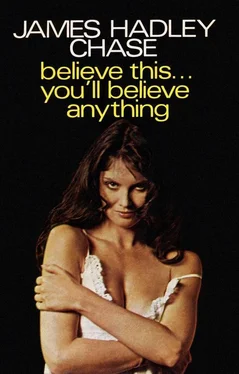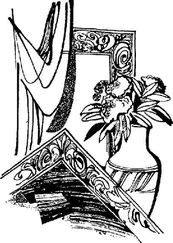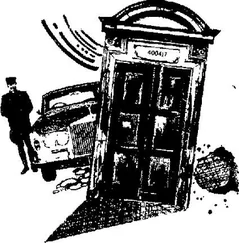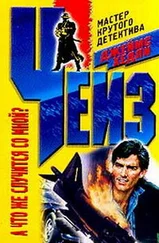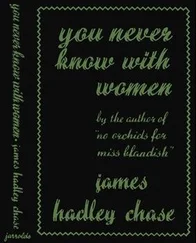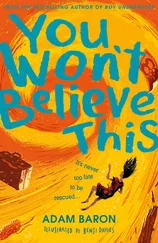I took out my handkerchief and wiped my sweating hands.
‘So the only solution would be for someone to persuade Dokes to release her?’
‘That or a timely heart attack. There is an old classic, Trilby... ’
‘I know it. Svengali died of a heart attack and Trilby could no longer sing.’
‘Exactly Mr. Fellows!’
‘I wouldn’t want to use the same solution in my book.’
He lifted his old shoulders and again looked at his watch.
‘Well, if he couldn’t be persuaded to release her, then he would have to die. He could meet with an accident. I am sure you are inventive enough to dispose of Dokes, Mr. Fellows, without any suggestions from me.’ He smiled. ‘If it were a thriller you are writing, she could, of course, murder him couldn’t she?’
Well now, Dr. Rappach, let us imagine we are continuing our conversation although I have already paid you a fifty-dollar fee, shaken your hand and driven away from the curious eyes of your children. I am parked on a lonely stretch of beach with only the palm trees to listen to our conversation.
‘First, let me thank you for your valuable time Dr. Rappach. I hope you don’t feel that you could have been more usefully employed than listening to the plot of my novel. You told me you charge your patients a quarter. Well, at least, my fifty dollars represents quite a number of patients. I do assure you, you gave me value for money.
‘You have confirmed what I was reluctant to accept: that there is only one solution to save Val. You said it. Val said it herself.
‘She said: As long as my life lasts, as long as his life lasts, I shall be his slave.
‘You, Doctor, said the same thing only in different words: Unless Dokes himself releases her or unless he dies, your heroine will remain in his power indefinitely.
‘So I am now convinced that only Vidal’s death will release her. It is as simple and as complicated as that. Complicated because to look at him, you couldn’t imagine him dying for many years to come. He is a man in his prime, bursting with energy, a non-smoker, a non-drinker: a man who takes care of himself.
‘And yet his death is the only solution if Val is to be freed of his influence.
‘You said. Doctor, If it were a thriller you are writing, she could, of course, murder him, couldn’t she?’
The hot wind blew through the open car window and yet I felt cold.
‘It is a valuable suggestion. Doctor, but not the right one... nearly right, but not quite. It is valuable because I hadn’t thought of murder to solve this problem. To prove to you that your suggestion that Val should murder him is wrong, I have to tell you that she means more to me than life itself. This sounds dramatic, doesn’t it? But it is a fact. I have never ceased to love Val from the moment I met her, six years ago. Murder means risk. I would never allow Val to be exposed to any risk if I could help it. But all the same your suggestion is valuable. I would accept the risk. Now you ask if I feel capable of murdering Vidal. Before I can answer that question, let us first take a look at Vidal. I don’t believe in devils, but if devils do exist as Val says they do and she has more experience of that kind of thing than I have then Vidal could be a devil. A man who can rape a woman under the influence of hypnotic power, who will destroy her confidence in herself and who will reduce her to a despairing, frightened cipher such as she had become, must be devilish. You say there are many people like him and it is the business of the police and the courts of law to deal with them. Yes, but you haven’t suggested that I should go to the police. You know as well as I do the police would dismiss my story as the ravings of just another nutter, envious of a millionaire tycoon.
‘You say I haven’t yet answered your question: do I feel capable of murdering Vidal? Frankly, as I sit here in the dark of my car under the palm trees that are swaying and creaking In the rising wind, with the lights of Paradise City distant across the causeway, the thought of killing Vidal doesn’t make me flinch. It doesn’t make me flinch so long as the thought remains a thought. I am now convinced that Vidal’s death is not only the one possible solution, but the right one. By murdering him, Val and I could pick up the threads that he snapped six years ago. We could get married and live happily ever after. I am already married? Yes, but it is no real marriage. Even Rhoda would agree about that. If Rhoda would be willing to divorce me and Vidal dies, then the dream I have lived for over six years would finally come about. You think I would have Vidal’s death on my conscience for the rest of my days? I wonder. You could be right, of course, but maybe I could convince myself that the end does justify the means and it would not worry my conscience. You again press the question: am I capable of committing murder? There you have a point. There are some people who have no compunction about taking life. My father was like that. He was a small time farmer and not a day passed without him coming from the fields carrying some dead animal: a rabbit, a hare, a badger or a fox. He was a remarkable shot. No pheasant, pigeon nor wild duck had a chance against his skill. He wanted to teach me to shoot but killing made me sick to my stomach. My father despised me for refusing to kill and I despised him for killing. So coming back to your question as to whether I feel capable of killing Vidal the answer is that I don’t know. I can kill him in my mind, I can try to make a plan to kill him so Val and I would never be suspected and if by killing him I could restore her to her old wonderful self of six years ago then I think I could even live with my conscience. But when the time comes, I admit it would be a toss-up whether I could do it. I do know I could never sneak up on him and kill him in cold blood. It would depend on the circumstances. I think I might do it if I were provoked.’
Carried by the wind a warm drop of rain came in through the open car window and splashed on my hand. My mind jerked back to reality. The wind was now roaring through the palm trees and the sea was turbulent. Heavy, black clouds began to blot out the moon. A streak of lightning split the sky followed by a deafening clap of thunder. Down came the rain: a steel curtain of wet violence.
I hurriedly wound up the window, set the windscreen wipers in motion, started the engine and flicked on the air conditioner.
For the moment, the period of thinking was over. There was time. Vidal wouldn’t return for another six days.
I headed for home.
For the next two days, it rained incessantly.
When Rhoda was at home she was either glued to a magazine or to the goggle box. She informed me that the weather service reported that there was a hurricane building up off the West Indies. This was the cause of the spell of bad weather. It was too early yet to say if the hurricane would be heading our way.
My mind was far too occupied to bother about hurricanes.
During those two days I had no news of Val. I was afraid to ask Dyer, still more afraid to seek out Mrs. Clements and ask her for news. I was alarmed to see from my office window Dr. Fontane arrive and depart twice a day. Surely these twice daily visits must mean that Val was very ill. It tormented me that I dare not ask nor show interest. I would have given anything to have gone to her room to find out what was happening, but the risk was too great.
At night, with Rhoda asleep at my side, I thought of Vidal. With the wind and the rain slamming against the window, I thought myself closer and closer to the acceptance of murder.
‘Probably you won’t have the guts to kill him,’ I told myself, ‘but if you manage to screw up enough guts, how do you plan to do it? What kind of a jerk would you be if suddenly you had the opportunity and were without the means?’
Читать дальше
